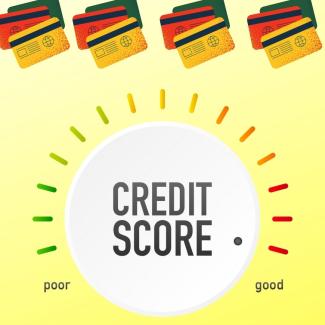
Credit for Personal Finance: A Beginner's Guide
Understanding credit is a fundamental aspect of personal finance. Whether you're planning to buy your first car, secure a mortgage, or simply manage day-to-day expenses, a solid grasp of how credit works is essential. This beginner's guide aims to demystify credit, offering you the knowledge and tools you need to manage your finances effectively.
Credit is essentially a way for you to borrow money with the promise to repay it in the future. It can come in various forms, including credit cards, loans, and lines of credit. When you use credit, you are leveraging future income to pay for current purchases, which can be incredibly useful but also risky if not managed wisely.
Types of Credit
- Revolving Credit: This is the most common type of credit and includes credit cards and lines of credit. With revolving credit, you have a set credit limit and can borrow up to that limit. As you pay off the balance, the credit becomes available again.
- Installment Credit: This includes loans such as mortgages, car loans, and personal loans. You borrow a fixed amount of money and repay it in regular installments over a specified period.
- Open Credit: This is less common and includes accounts that must be paid in full each month, such as utility bills and some types of charge cards.
The Importance of Credit Scores
Your credit score is a numerical representation of your creditworthiness. Lenders use it to determine the risk of lending you money. Scores typically range from 300 to 850, with higher scores indicating better creditworthiness. Several factors influence your credit score:
- Payment History: Timely payments on your credit accounts significantly impact your score.
- Credit Utilization: This is the ratio of your current credit balances to your credit limits. Lower utilization is better.
- Length of Credit History: A longer credit history can improve your score.
- Credit Mix: A diverse mix of credit types (revolving and installment) can be beneficial.
- New Credit: Opening several new credit accounts in a short period can negatively affect your score.
Building and Maintaining Good Credit
- Start Small: If you're new to credit, consider starting with a secured credit card or becoming an authorized user on a family member’s account. This can help you build a credit history.
- Pay on Time: Always pay at least the minimum amount due on your credit accounts by the due date. Late payments can significantly harm your credit score.
- Keep Balances Low: Aim to use less than 30% of your available credit. High balances can negatively impact your credit score.
- Monitor Your Credit Report: Regularly check your credit report for errors and dispute any inaccuracies. You can get a free annual credit report from each of the three major credit bureaus: Equifax, Experian, and TransUnion.
- Avoid Unnecessary Credit: Only apply for new credit when necessary. Each application can result in a hard inquiry, which can slightly lower your score.
Using Credit Wisely
- Create a Budget: Understand your income and expenses to ensure you can make your credit payments on time.
- Emergency Fund: Build an emergency fund to avoid relying on credit for unexpected expenses.
- Understand Interest Rates: Be aware of the interest rates on your credit accounts. High-interest rates can make borrowing very expensive.
- Debt Management: If you have multiple credit accounts, consider strategies like the debt snowball or debt avalanche to pay off your debts efficiently.
The Role of Credit in Major Financial Decisions
Credit plays a crucial role in many significant financial decisions:
- Buying a Home: A good credit score can help you secure a mortgage with favorable terms.
- Purchasing a Car: Auto loans often require a good credit score for the best interest rates.
- Starting a Business: Entrepreneurs often rely on personal credit to secure initial funding.
- Employment: Some employers check credit reports as part of their hiring process.
Common Credit Pitfalls to Avoid
- Overusing Credit: Avoid maxing out your credit cards or taking on more debt than you can handle.
- Ignoring Statements: Always review your credit statements to catch errors or fraudulent charges.
- Only Making Minimum Payments: Paying only the minimum can lead to high interest charges and prolonged debt.
- Closing Old Accounts: Closing old credit accounts can reduce your available credit and shorten your credit history, both can lower your credit score.
Conclusion
Understanding and managing credit is vital for financial health. By building a solid credit history, using credit responsibly, and avoiding common pitfalls, you can ensure that credit works for you, not against you. Whether you're just starting your financial journey or looking to improve your credit habits, the knowledge and strategies outlined in this guide will set you on the path to financial success.

